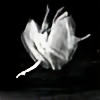HOME | DD
 BenHeine — Aime Cesaire
BenHeine — Aime Cesaire

Published: 2008-04-25 13:35:01 +0000 UTC; Views: 3464; Favourites: 28; Downloads: 145
Redirect to original
Description
© Ben Heine || Facebook || Twitter || www.benheine.com____________________________________________________
I made this quick pencil portrait in the subway, so it's
not super accurate... Aimé Césaire was a great man.
____________________________________________________
For more information about my artwork: info@benheine.com
____________________________________________________
Martinican politician, intellectual and poet who was a founding father of the négritude movement
By James Ferguson
Aimé Césaire, the Martinican intellectual and politician who has died aged 94, left his mark in two separate, seemingly contradictory, fields. As a poet, dramatist and essayist, he coined the term "négritude" to define the revolutionary black aesthetic that rallied French-speaking intellectuals in the Caribbean and Africa in the 1930s. His Cahier d'un retour au pays natal (Return to My Native Land), first published in 1939, is considered the undisputed masterpiece of négritude and a poetic milestone of militant anti-colonialism and metaphorical inventiveness.
At the same time, Césaire was a leading architect of departmentalisation, the process that transformed four French colonies - Martinique, Guadeloupe, Guyane (French Guiana) and Réunion - into fully fledged departments of France. While Césaire the poet inveighed against the cultural arrogance of Europe and celebrated a mythic African identity, Césaire the politician tied the mostly African-descended people of Martinique to the assimilationist structure of the French republic.
Césaire was born at Basse-Pointe, a small town on Martinique's north coast. Although in his Cahier he evoked his childhood as poverty-stricken and squalid, his family was part of the island's small, black middle class, with his father employed as a tax inspector. The family moved to the capital, Fort-de-France, where Césaire went to the Lycée Schoelcher. He was a prize-winning student, easily adapting to the elitist French education system which was entirely alien to the great majority of Creole-speaking rural Martinicans. In 1931 he won a place at the Lycée Louis-le-Grand in Paris. Four years later, he was admitted to the prestigious École Normale Supérieure, where he studied literature and philosophy.
Amid the ideological and cultural ferment of 1930s Paris, Césaire discovered a wide range of influences. In the company of African students such as Léopold Senghor (later president of Senegal), he familiarised himself with African culture and the continent's anti-colonialist movement.
He became interested in Marxism (although he was never an orthodox Marxist), read Harlem renaissance writers such as Langston Hughes and Claude McKay, and immersed himself in the various ephemeral journals and movements which proliferated during the inter-war years. In one such journal, L'Étudiant noir, he wrote an article attacking the cultural assimilation of blacks and counterposing négritude as a positive revaluation of African aesthetic values. Yet while Césaire was championing what he saw as a primitivist antidote to stultifying western rationalism, he was also on the treadmill of France's most elite academic institution, studying the classics of the official culture.
After eight years in Paris, Césaire returned to Martinique in August 1939, married to Suzanne Roussi, a fellow Martinican student and enthusiastic exponent of négritude. That same month, the first version of the Cahier appeared in an obscure Parisian journal, Volontés, eliciting no reaction whatsoever. For five years Césaire taught at the Lycée Schoelcher, inspiring a generation of students, among them the revolutionary psychiatrist and writer Frantz Fanon. He also edited a literary review, Tropiques, which popularised négritude themes of African culture and anti-colonialism among the island's intellectuals.
When André Breton, the high priest of the French surrealist movement, visited Martinique in 1941, he was impressed by Césaire's stature and poetry. According to Breton's own recollection, he found a copy of the Cahier in a Fort-de-France haberdashery, recognised it as a work of genius and relaunched the poet's career. In surrealism, moreover, Césaire found an aesthetic of irrationalism which coincided neatly with the anti-Cartesian precepts of négritude.
The war years were particularly harsh for Martinique, which was blockaded by the US navy in 1942-43, its white colonial rulers having sided with Pétain's Vichy regime. The enforced presence of thousands of French sailors encircled by a US fleet doubtless reinforced Césaire's hatred of racism. The emergence of the French Communist party (PCF) as the leading anti-Vichy force was another important development, and by 1942 Césaire was a member. In 1944, he escaped the claustrophobia of Fort-de-France and went on a lecture tour to Haiti. His exposure to the nation which had thrown off French colonial rule through revolution was a dramatic vindication of his négritude and reputedly cured his stammer. The heroic figures of Toussaint L'Ouverture and King Henri Christophe symbolised impoverished Haiti's grandeur and were later to feature prominently in Césaire's writing. He returned to a Martinique in political turmoil, where the PCF was capitalising on long pent-up aspirations for change in the colonial system. In rapid succession, in 1945, Césaire was elected mayor of Fort-de-France and a representative to the French constituent assembly, both on a PCF ticket. He was 32 years old; he held the mayoral office, with a brief interruption, for the next 56 years and, having been elected as deputy for Martinique to the national assembly in Paris in 1946, remained in post until 1993.
With the French colonies stagnating after decades of neglect and the privations of the war, Césaire and his colleagues on the left, both in Paris and the Caribbean, favoured political integration over independence, arguing that a "rational dependence" on France would quickly raise living standards through massive subsidies. The PCF-sponsored legislation creating the union was supported in a 1946 referendum, and Martinique and the other colonies became departements d'outre mer (Doms) or overseas departments of France, theoretically on a constitutional par with any French department.
But the rapid improvements anticipated by Césaire were slow to materialise. A highly centralised system of government from Paris gave too much power to a prefect; the subsidies from France were inadequate to rebuild the run-down island infrastructure. In 1958, Césaire voted in support of President de Gaulle's constitutional reforms which created the fifth republic and replaced the union with the "communauté française". These gave more political autonomy to the doms and also allowed Césaire to elaborate a political position which he held more or less consistently for the rest of his career: increased autonomy within a departmental relationship with France.
By then, moreover, he had shrugged off another form of centralising authority in the form of the PCF. In his Letter to Maurice Thorez (1956), he rejected Stalinism and the mechanistic downgrading of race and culture as diversions from class struggle. In 1958 he formed the Progressive Martinican party (PPM), an organisation which supported departmentalisation but demanded greater freedoms from metropolitan control. Re-elected mayor of Fort-de-France at every subsequent election and a deputy in Paris until his retirement in 1993, he was an efficient administrator and the personification of a status quo which most Martinicans found acceptable.
Despite his enduring electoral support, Césaire came under fire from both advocates of closer assimilation and supporters of independence. For the former, his demands for greater autonomy made Martinique an unjustified "special case" and threatened French goodwill. For the latter, departmentalisation had created a second-class citizenship and an artificial economy, held together only by French subsidies. President François Mitterrand's decentralisation measures in 1983 provided the PPM with some breathing space, allowing Césaire to claim that the doms would have a greater say in their development within a more regional framework of government. However, during the 1980s and 1990s advocates of independence made steady progress among a younger generation of Martinicans, accustomed to the subsidised welfare state and bored with the PPM's official line.
Césaire's literary work has also faced increasing criticism in recent years from younger Martinican writers who see négritude, with its mythic associations of primitivism, as irrelevant to a modern, non-African society. Although the republication of the Cahier in 1947 confirmed his status as a major 20th-century poet, Césaire never really achieved the same international success with subsequent work such as Soleil Cou Coupé (1947), or Ferrements (1960). His plays, dealing with historical aspects of colonialism, are little known outside France. As new Martinican writers stressed the importance of Creole as the medium for exploring the island's real culture, they derided Césaire's attachment to classical French as further evidence of his own assimilation to neo-colonial metropolitan values. The most ambiguous canonisation, meanwhile, took the form of the Cahier being included in the first-year French syllabus at Oxford University in 1996.
The contradictions at the heart of Césaire's career remained unresolved. Despite the massive importation of French consumerism into Martinique, he continued to argue that cultural autonomy could co-exist with departmentalisation. And despite the development of Martinique as a distant outpost of the EU, he persisted in looking to Africa as the source of authenticity. In his last years, he became irascible and would abruptly terminate interviews if the names of his political and literary critics were even mentioned.
Césaire's reputation as a poet rests largely on one epic expression of anti-colonial wrath and surrealist delirium; the Cahier has achieved the immortality that the French literary establishment bestows on certain works. But Césaire's legacy is perhaps more significant in the existence of a French department 7,000km away from France, whose people, for the time being at least, wish it to stay that way. His wife predeceased him; they had four sons and two daughters.
· Aimé Fernand Césaire, poet, playwright and politician, born June 26 1913; died April 17 2008
-------------------
--> This obituary appeared on : [link] (The Guardian)
Related content
Comments: 23

nice one a quick drawn carricature indeed full of Characteristics.....
👍: 0 ⏩: 0

"Aucune race n'a le monopole de l'intelligence, de la beauté, de la force, et il y a une place pour tous au rendez-vous de la victoire." A. Césaire...
Hommage...
Joli portrait
👍: 0 ⏩: 0

that death was sad! i hope his work is not in vain!
👍: 0 ⏩: 0


Such a GRAND Composition !

The members of the PURPLE CLUB adore it !!!
(0)(0)
(^Y^)
(O)(O)
~~~~
👍: 0 ⏩: 0

It's not accurate, but it's a wonderful detailed portrait!
I could never do something on a plane, ship or any medium of transportation... I always get sick on journeys.
I know subways are noticeable but the tumble once in a while. :S
👍: 0 ⏩: 0

Wow, never saw anyone with the male version of my name before! (Aimée)
👍: 0 ⏩: 0

Even if you did do this quickly, it's still amazing~
Great picture!
👍: 0 ⏩: 0

I like your drawings when you can c your real drawing style
Thisone is one of your best !
👍: 0 ⏩: 0

So you did this from memory? This is fantastic...only the glasses are off...otherwise, this is he!!! Wonderful job and thanks for the obit...!
👍: 0 ⏩: 0

Même si tu as l'air de le trouver sans mérite, j'aime beaucoup ce portrait ! Bien joué Ben !
👍: 0 ⏩: 0

Pour quelque chose fait de mémoire, c'est pas mal du tout!
👍: 0 ⏩: 0








































